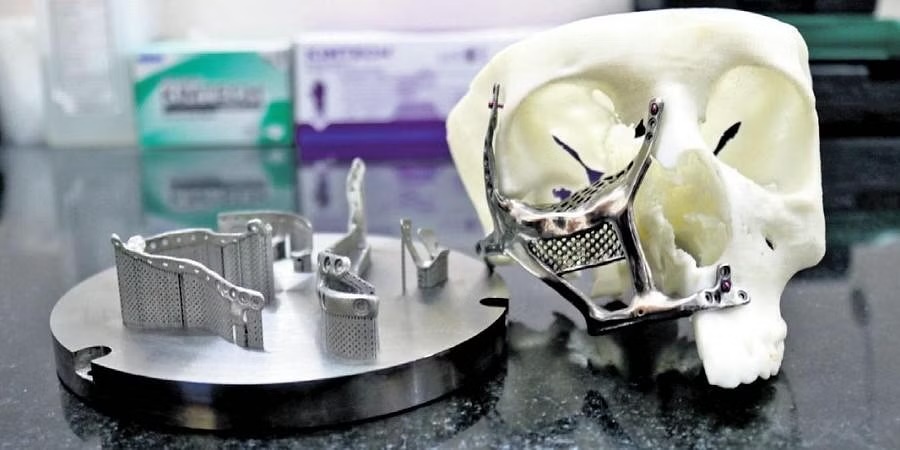- Around 50 of them have already been implanted in patients from economically weaker sections.

The Indian Institute of Technology Madras (IIT-M) has made a significant medical technology breakthrough by developing low-cost 3D-printed face implants. This breakthrough is aimed specifically at patients who have been affected by black fungus. Mucormycosis, also known as black fungus, is a serious condition that has been increasingly reported in COVID-19 patients, as well as people with uncontrolled diabetes, HIV/AIDS, and other medical conditions. The disease damages facial tissues severely, resulting in necrosis (tissue death) and disfigurement. In severe cases, patients may lose major facial features such as the nose, eyes, or even the entire facial structure.
In response to this pressing issue, IIT-M’s initiative has already benefited approximately 50 patients from economically disadvantaged sections of society. This is significant because the cost of patient-specific implants and reconstructive surgeries is typically very high, making them unaffordable for many people. IIT-M has significantly reduced costs by utilising 3D printing or additive manufacturing technology.
IIT-M’s 3D-printed face implants
The project is a collaboration with ZorioX Innovation Labs, a Chennai-based start-up founded by dental surgeons. They are working together to address one of the most difficult aspects of black fungus disease: the loss of facial features. The 3D-printed implants are tailored to each individual patient, resulting in a better fit and more natural appearance after surgery. This approach not only improves the patients’ physical appearance but also aids in the restoration of their self-esteem and social interactions, which are frequently harmed in such cases.
According to an IIT-M press release, approximately 60,000 cases of black fungus have been reported in India since the pandemic. IIT-M’s development of low-cost, 3D-printed face implants is a significant step towards addressing the disease’s aftermath, particularly for those who cannot afford traditional medical treatments. This breakthrough demonstrates the power of technology to transform healthcare and make it more accessible to people from all walks of life.

“Additive manufacturing (3D printing) has already emerged as a viable and cost-effective manufacturing process for low volume production of complex body implants. Extensive research is already being carried out in IIT-M, regarding the prospects of commercialising this technology for printing patient-specific implants in stainless steel, Ti-6Al-4V and Co-Cr-Mo alloys.”
– Murugaiyan Amirthalingam, associate professor, department of metallurgical and materials engineering, IIT-M
Murugaiyan continued, “A patient’s MRI/CT data is converted to a printable CAD format using unique in-house algorithms, and custom implants are printed from medical-grade titanium using an indigenously built laser powder bed facility inside IIT-M.”
Speaking about this initiative, Dr. Karthik Balaji, CEO, ZorioX Innovation labs, said, “Post-Covid there has been an increase in number of black fungus cases. To save the lives of the patient, a lot of facial bones had to be removed. These patients are mostly breadwinners of the family and are now confined within four walls because of their facial deformity. #Right2face movement is aimed to help these needy patients in association with the oral and maxillofacial surgeons to restore the faces and give them back their smile.”
Researchers then identify patients who cannot afford expensive implants and provide them with free 3D-printed replacements as part of the #Right2Face initiative. This initiative aims to assist low-income black fungus patients in obtaining patient-specific custom maxillofacial implants.
About Manufactur3D: Manufactur3D is an online magazine on 3D Printing. Visit our Indian Scenario page for more updates on 3D Printing News from India. To stay up-to-date about the latest happenings in the 3D printing world, like us on Facebook or follow us on LinkedIn and Twitter.



